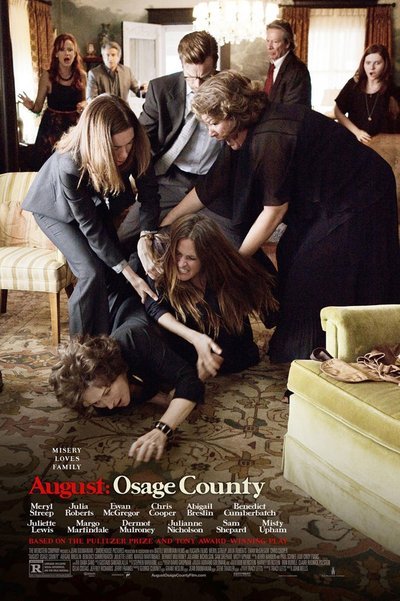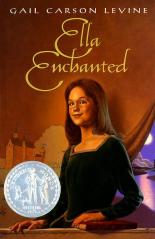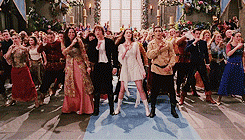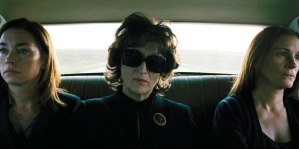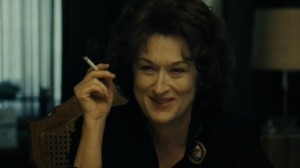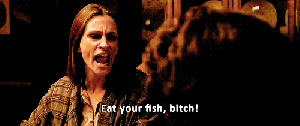When I was 9 or 10 years old, one of my favorite books in the whole wide world was “Ella Enchanted” by Gail Carson Levine. A spunky twist on the Cinderella story, the book chronicles the adventures of Ella of Frell, a young girl who, at a very young age, is bestowed with the ‘gift’ (read: curse) of obedience by a short-sighted fairy . In the book, Ella is magically bound by the curse to obey any command she is given. When Ella is told to sit, she sits. When she is told to sing, she sings. And, well… you get the picture. Throughout the book, Ella must figure out if there is any way she can break her curse.
So — imagine my joy when a few years later, I learned that one of my favorite books was to made into a movie! I could hardly wait. So, for my fourteenth birthday, I gathered a group of my friends and went to the theater to watch the movie. My excitement and anticipation dissipated, however, as soon as I realized that the movie version was nowhere near as incredible as the book. Firstly, the movie had taken several liberties with major plot points. Moreover, the film had a markedly childish and cartoonish air about it (characters breaking out into song and dance every so often), which did not really do the book justice.
- This did NOT happen in the book.
So what is the point of this childhood nostalgia? Well, once I disavowed myself of the notion that the book and movie must be one and the same, I appreciated that the movie actually was not that bad…in fact, I liked it. I laughed throughout the film and enjoyed the song and dance numbers. And the point of this lengthy story –the moral, if you will, is that if a movie can stand alone, apart from the original version, in whatever medium it exists, then I think it will have succeeded on one level, at least.
August Osage County
THE FILM
“August: Osage County” was a play that originally premiered in Chicago’s famous Steppenwolf theater, before catapulting to national and international fame (the play has opened successfully on Broadway and is opening/has opened in London as well). The film recounts a series of events that occur at the rural Oklahoma home of matriarch Violet Weston following the death of her husband. Violet, who is played to horrifying perfection by Meryl Streep, is a cruel and bitter old woman who is suffering from “cancer of the mouth,” as well as a nasty addiction to prescription painkillers. The film features an ensemble cast including Meryl Streep, Julia Roberts, Ewan McGregor, Benedict Cumberbatch,and Abigail Breslin (amongst others).
After her husband’s untimely death, Violet’s three daughters and sister and their respective families arrive at her hot and dusty home to pay respects to their deceased relative. But unfortunately for the characters in the film, the concept of ‘paying respect’ is somewhat lost on Violet. Old family hostilities and resentments are brewing so close to the surface that it doesn’t even take half an hour before people are screaming at one another at the top of their lungs. Violet is almost always the instigator. In one particular scene, Violet calls out people at the dinner table like I imagine a snake would spew venom (no offense to the serpent family). No family member is spared her cruel commentary, nor is anyone beneath her reproach.
Add to this calculus a defensive and defiant daughter named Barbara, played very well by Julia Roberts, and you have the perfect recipe for a showdown in every scene. Barbara, the prickliest of Violet’s offspring is struggling to raise her adolescent daughter and deal with her marital problems at the same time. She is entirely disabused of any semblance of positivity when it comes to her family and has tried, almost successfully, to cordon off her family from her adult life. However, as is the case in many dysfunctional family situations, Barbara possesses a number of traits that she herself despises in her mother.
Watching the film, its really easy to see why its been so successful as a play. From my experience, the best plays are those that draw upon emotions from the human experience in the most visceral manner possible. Because plays, by their nature, are limited to the stage setting, actors must rely heavily on their facial expressions and their style of delivery to really drive a point home. There’s no score to back up a dramatic scene, nor are there really too many special effects or breathtaking scenery. The beautiful thing about plays, in my opinion, is that there doesn’t really need to be a cohesive or narrative story in order for the play to succeed. In my mind, the best plays are those in which I am able to witness raw emotions onstage. And that, dear reader, does not really require an A,B,C plot structure. You could watch a play in which two people discuss life over coffee for two hours and it could be riveting, if the script, dialog, and acting is all strong enough. Now, imagine a film in which people sit together and talk for two hours over coffee…Would you want to see that? Unlike the play where a viewer feels entirely immersed in the actor’s experience, in a movie, I at least, feel quite removed from everything.
And that, dear reader, is where this movie fails. While as a play screaming and throwing objects may have worked effectively throughout the entirety of Act 2 or whatever, it does not work so well in film format. I felt like this film was just scene after scene of depressing failed interactions between family members. Scene after scene, you learned about grudges and family secrets, dredged as deep as humanly possible, yet you did not really gain a deeper sense of why any of the dysfunction matters or why you as a viewer, should really care. The acting was, for the most part, exceptional*– that being the case, there wasn’t much else to the plot of this film. The film never really went beyond surface level of the issues faced by the Weston family.
*I say, the acting was exceptional for the most part, because as brilliant as he is in almost everything he stars in, Benedict Cumberbatch was terribly miscast in this film. I just could not really buy Benedict’s version of an insecure, overgrown boy from Oklahoma. His accent faltered at several points in the film (which was strange, given how good it was in “12 Years a Slave). Apart from that, he just really didn’t fit the character description all that well and I did not see him as the character, but more as an actor Acting (with a capital “A”).
Its shortfalls aside, I did enjoy watching the film, if only for the sheer strength of the performances throughout. Meryl Streep is…well, Meryl Streep. Julia Roberts also gives a hell of a performance, though she also slips into Acting with a capital “A” at times. Juliette Lewis did an excellent job as well, playing a deluded character who wears rose-tinted glasses at all the time to evade any semblance of reality.
Sidenote: I find that Roberts gives her best performances when she’s in roles that require her to be bitter and angry.
Sidenote 2: I don’t think I’ve ever seen a movie in which Juliette Lewis wasn’t playing a hot mess. She plays it well, but I am interested to see her in a different kind of role.
Grade: B
